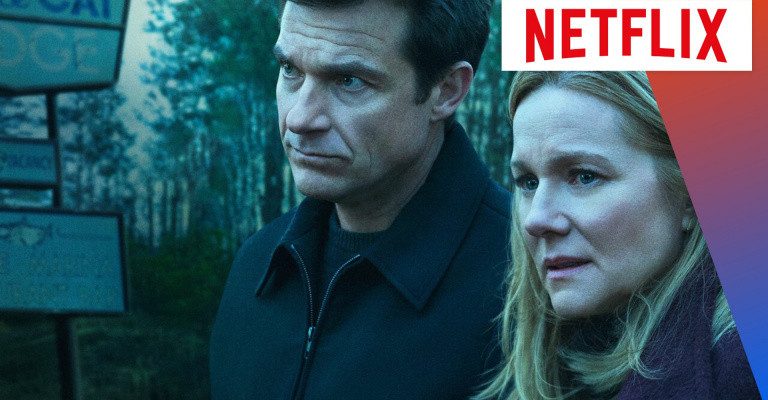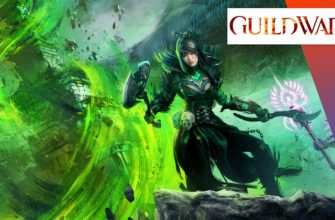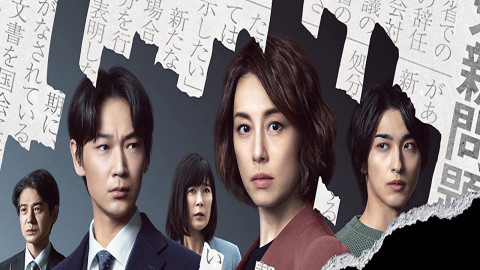
As almost every month, Netflix highlights Korean and Japanese productions, and after Squid Game, My Name or Hellbound, it’s the turn of The Journalist to burst the screen on the SVOD platform. Behind this new serial work from the Netflix catalog actually hides the adaptation of a book, published in 2017 by Isoko Mochizuki, which has already had the right to a release in the form of a feature film directed in 2019 by Michihito Fujii, which we find here behind the camera. Already crowned with success at the time during the Japan Academy Prize ceremony, the Netflix series intends to follow in the footsteps of the previous adaptation with this salvo of ten episodes of about fifty minutes. Inspired by writer Isoko Mochizuki’s own story, the series The Journalist immerses us in the daily life of Erika Yoshioka, a young journalist responsible for investigating, following the receipt of an anonymous letter, new facts of cover-up by the Japanese government. Already marked by the recent suicide of her father, suspected of having falsified information, Yoshioka will be confronted during her research with other strange disappearances, like that of Mr. Kanzaki, but this one will eventually join forces with an official in the Cabinet’s intelligence and research office, Takumi Sugihara, to shed light on the huge scandal that threatens to turn both the country and their respective careers upside down.

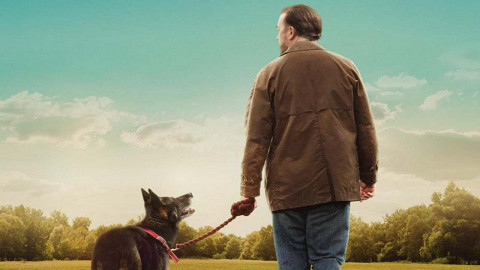
The American streaming giant’s catalog isn’t just filled with sitcoms, such as The Office, Seinfeld and Friends to name a few, or light and comical programs. First broadcast in 2019 on Netflix, the series After Life is one of the last productions of the multifaceted artist Ricky Gervais who is known for his pungent, dark and tongue-in-cheek humor, his stand-up shows or his work on the series The Office, previously cited. Despite its short format, both in terms of episodes (6) and duration (between 25 and 31 minutes), the series shines with its many writing qualities (common thread of the story, themes, characters, etc.) and its subject, simple but terribly well exploited. We follow Tony, a man working for a local newspaper, the Tambury Gazette, as he tries to recover from his wife’s sudden disappearance from cancer. Plunged in the middle of a mourning from which he is struggling to recover, Tony will go through all the states and sensations imaginable and will not stop attacking this so cruel life.. Between a gallery of endearing characters, situations as unlikely as they are funny and an adorable dog who allows Tony to keep his head above water, After Life returns for a final season of six episodes that will make us laugh as well as cry, in addition to revealing, finally, the events that will follow the cliffhanger of season 2.


After Riot Games and the masterpiece produced by Fortiche Productions, Arcane, it’s the turn of another video game company to land on the streaming platform. Indeed, Valve and its DotA 2 license (Defense of the Ancients, a mod initially developed by fans for the game Warcraft III: Reign of Chaos) return for the second season of the anime Dragon’s blood, less than a year after the release of the first series of episodes! Despite a rather rich lore, Dragon’s blood do not ask you to have an inexhaustible knowledge about MOBA: indeed, the game is well known more for its competitive aspect than for its history. Blessed bread for Studio Mir, to whom we owe the series The Legend of Korra or, more recently, The Witcher: Nightmare of the Wolf, since they had, in a way, carte blanche to imagine a story in its own right. The first season, of which you can see an excerpt at the head of the article, lingered on the adventures of the Dragon Knight, Davion, and the various protagonists who will cross his path. Relatively classic, even too much, in the construction of its plot and its universe, the first season however set the tone with well-defined issues, a good dose of humor and particularly rhythmic and successful clashes that kept us well hooked.. We can bet that the quality will always be at the rendezvous of this ” Book II »And that the subjects left unanswered at the end of the first eight episodes will benefit from new twists!

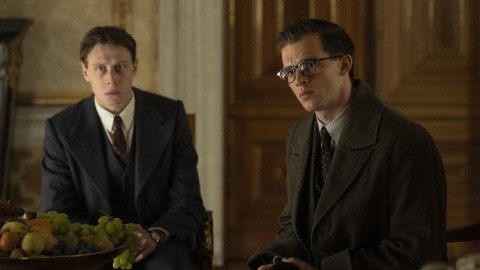
In the category of cinematographic adaptations of literary works, we find again this month the next film by Christian Schwochow on behalf of Netflix, namely The Munich vice. Released in 2017, the original work, Munich, is signed by Robert Harris and takes the form of a thriller set in the Munich Agreement during the late 1930s. In the fall of 1938, the history of the world was on the verge of changing again under the impetus of Adolf Hitler: he was preparing to declare war on Czechoslovakia and was on his way to the city of Munich. At the same time, the British Prime Minister, Neville Chamberlain, flies to the German city, along with his government, in the hope of finding a solution and thus avoiding the tragedy that is brewing in the shadows. It was during this critical period that Paul von Hartmann, German diplomat and member of the resistance to Nazism, and Hugh Legat, Chamberlain’s private secretary, met again. Friends while studying at Oxford, they haven’t heard from each other since the early 1930s, but this last-ditch conference in Munich could have a big impact on their bond.. In the cast, we find, among others, two famous faces like that of George MacKay (1917 by Sam Mendes) and Jeremy Irons (Assassin’s Creed, Justice league, Watchmen,…).

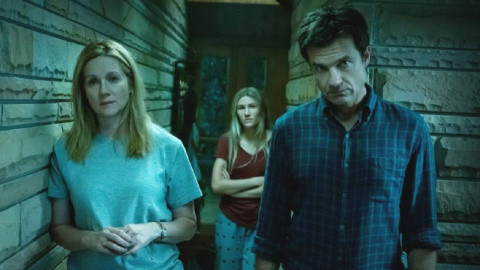
From the launch of its first season, Ozark was quickly compared to the huge series breaking Bad by Vince Gilligan. A very flattering parallel, even if the Netflix series is far from equaling the success of the series which has seen emblematic figures such as Walter White, Jesse Pinkman, Gustavo Fring, Saul Goodman or Mike Ehrmantraut to name but a few. them. Nevertheless, we really find a family resemblance between the two series because if they are far from being carbon copies, they share great similarities. : a very special atmosphere, fueled by a very marked photography and colorimetry, characters not necessarily very frequentable, stories of money laundering, mafias who care about their business and, in the middle of it all, a family all that that there is more banal. At least, apparently because the father of the family, Martin Byrde, found himself in the middle of a cartel case that had gone wrong and he intends to correct his mistake to protect his family. This is how he goes, accompanied by his wife and two children, to the Lake of the Ozarks region to organize a financial package as discreet as it is prolific.. Except that for three seasons, you guessed it, the Byrdes have known a lot of twists and this fourth and final season of 14 episodes, divided into two parts, should be no exception to the rule.

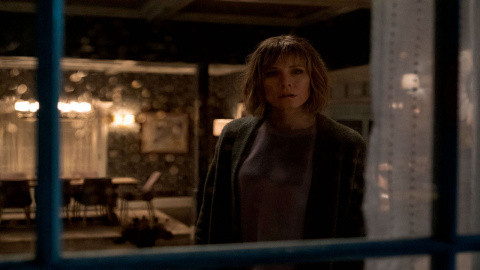
The name of this new Netflix series is a bit barbaric, we concede it, but it should delight fans of formats filled with second degree. At the sight of the title, many will have recognized the nod to Alfred Hitchcock’s film, Window on courtyard, but it is also a snub to one of the last productions of the American giant, namely The woman at the window by Joe Wright with Amy Adams in the title role, since it is, in a way, a parody of it. We follow the daily routine of Anna, a depressed and heartbroken young woman, played by Kristen Bell (Veronica mars, The Good Place), who spends his time watching life go by from his window, in the company of his favorite glass of wine. However, this monotonous life will quickly take a much stranger turn when, when she spies on her new neighbor and her daughter, she witnesses a gruesome murder.. But was she really right? If she quickly alerts the authorities, her explosive cocktail, mixing wine and tablets, does not help her to be heard. Under its aspects of satirical and dark comedy, The woman who lived in front of the girl at the window, a series created by Rachel Ramras, Hugh Davidson and Larry Dorf – all three used to working together – offers a clever mix of genres to offer eight episodes effectively combining psychological thriller and second degree comedy.


